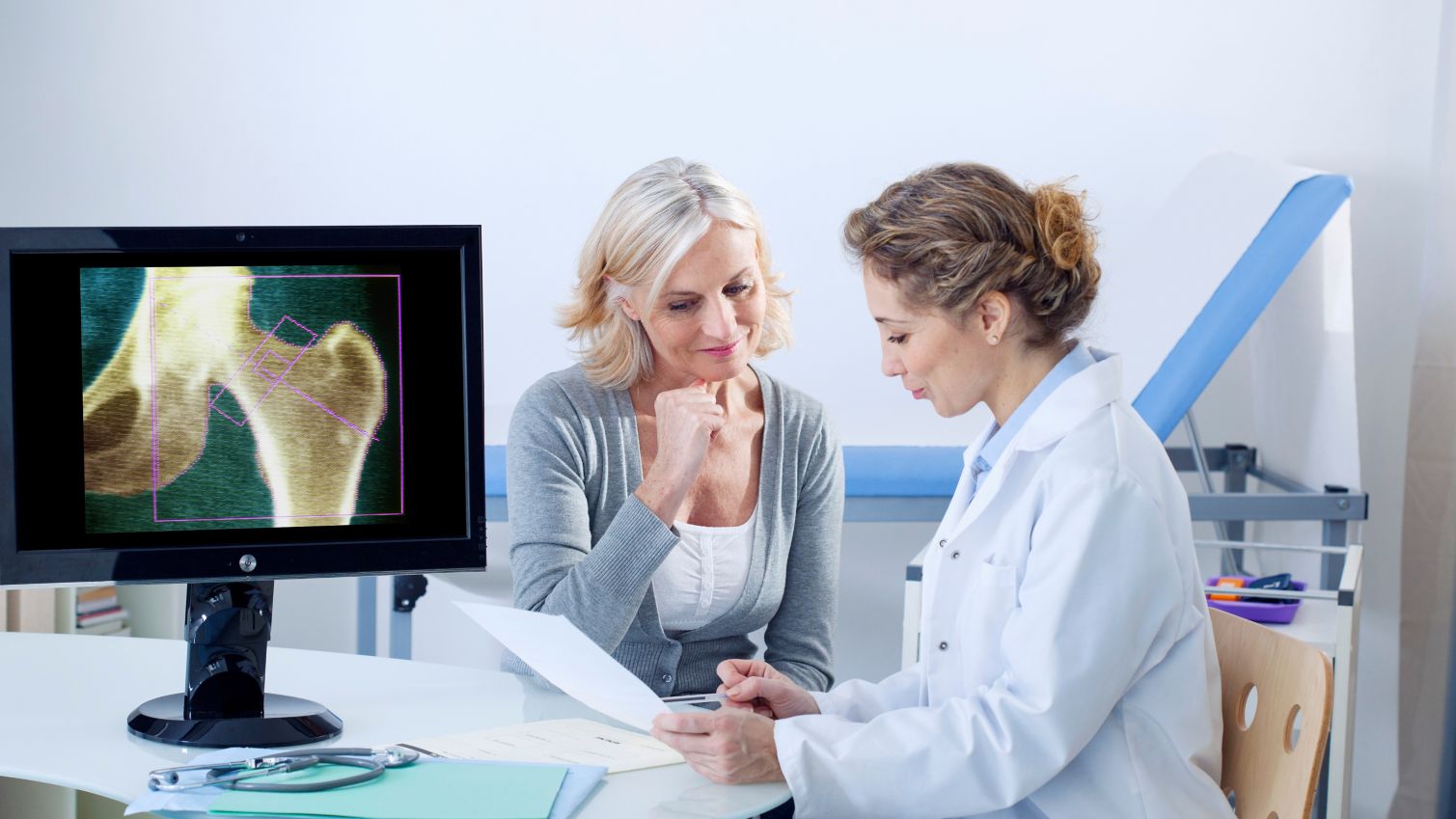If you recently suffered a fracture or are 1 of the millions of Americans at risk for osteoporosis,1 it may be a good idea to schedule a bone mineral density (BMD) test. These tests measure your bone strength and may help determine if you have osteoporosis.
Manage your bone health

What is osteoporosis?
Osteoporosis is a condition that occurs when the body loses bone mass or produces too little bone. When the bones lose density, they may break more easily due to falls or other injuries. Osteoporosis is very common, especially as people age. Among people 50 and older, about 1 in 2 women and 1 in 4 men will break a bone because of osteoporosis.2
What is a BMD test?
BMD scans may use either a low-dosage X-ray or ultrasound technology to measure your bone density. These tests are generally quick and painless and an important step in diagnosing osteoporosis.3 A BMD test will assess the calcium and mineral content of your bones. The more minerals your bones have, the stronger they are. One of the results of the BMD test is called a T score. The T score compares your bone density to that of an average healthy young adult of your gender. If your T score is lower than -2.5, you may have osteoporosis.4
What to do next
According to the Mayo Clinic, your doctor may recommend a BMD test If you are at risk for osteoporosis or have recently suffered a fracture.5 Many Humana plans cover BMD screenings, so if you are a Humana member, your test may be covered by your plan at no additional cost to you.
Here are the next steps for scheduling your BMD test:
- Call your doctor: Have your Humana member ID card ready when you schedule your BMD test with your doctor. If you don’t have a physician, use our
find a doctor tool - Follow your doctor’s advice: After the test, your doctor may create a treatment plan based on your risk for osteoporosis. Your doctor might give advice on diet, exercise or medications. They may also talk to you about ways to improve balance and prevent falls or suggest using a cane or walker.
Don’t wait to call your doctor and schedule your test. Your BMD assessment is a key part of diagnosing osteoporosis, getting a treatment plan and maintaining the health of your bones.6

How can I schedule a BMD test near me?
Consult a doctor to see when you should set up a bone density screening. Find a doctor in your network to schedule a BMD test near you.
Sources:
- “
What is Osteoporosis and What Causes It?” Bone Health & Osteoporosis Foundation, last accessed Dec. 5, 2024. - “What is Osteoporosis and What Causes It?”
- “
Bone density test, ” Mayo Clinic, last accessed Dec. 5, 2024. - “
What Is a Bone Mineral Density Test ?” WebMD, last accessed Dec. 5, 2024. - “Bone density test.”
- “What Is a Bone Mineral Density Test?”